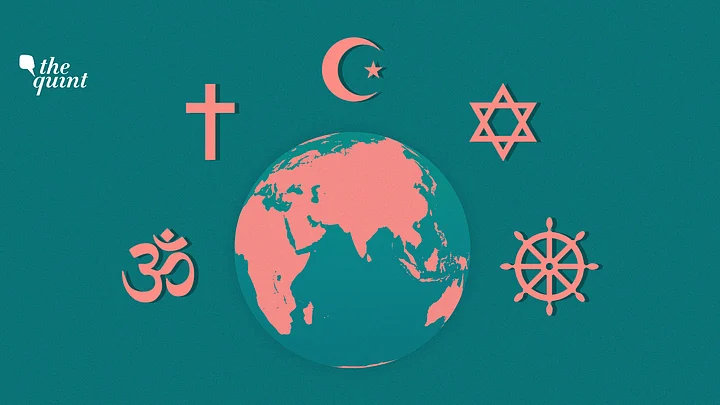Western values embody a belief system to which many Asians and others are willing to sign up, although alternative world views survive. Chinese, Russian and Islamic values are never likely to enjoy a comparable universality, but the future would probably be more transactional, bilateral, driven by power and national interests rather than values or sense of international community. This is already noticeable both in the West and in Asia.
Asian states resisted western attempts to export secular and post-modern versions of their value system. Modernization has now arguably created the seed-bed for the world’s first global community, but urbanization and connectivity in Asia and the West have modified and hybridized values and norms. Societal values have only a tenuous relationship with foreign policy, where sacral, civilizational and philosophical traditions count for more.
Islamic Values in Diplomacy
Quite a number of predominantly Muslim countries claim their policies and actions as being motivated by Islamic values.
For example, secular Turkey is largely conditioned by Islamic values and its foreign policy is Islam-sensitive, whereas Iranian foreign policy is realpolitik packaged in the language of political Islam because political discourse in Iran is Islamized despite a clear foreign policy continuity from before the 1979 revolution that deposed the Shah. Islam is used in both Turkey and Iran to legitimize and galvanize popular support.
By contrast, Indonesia, by far the biggest Muslim country, seeks to promote the healing touch of moderate Islam, albeit with little recordable success.
Despite its dominating presence due to size and population, Indonesia exercises enormous reticence and discretion in its regional diplomacy. The 57-nation Organization of Islamic Cooperation is not outcome-driven, never openly criticizes member states or holds them to account.
Difficult to Find Any Two Muslim Countries Pursuing Similar Policies
The faith and practice of Islam has tended to vary across time and space, much like any other religion or body of ideas, and has tended to acquire distinctive characteristics that make the Muslim world nearly as diverse as any other group of countries in the world.
Thus, far from all predominantly Muslim countries following similar tropes of political behaviour in the international arena, it is difficult to find any two Muslim countries pursuing similar policies motivated by similar considerations of the faith to the exclusion of other impulses. Geostrategic, economic and political factors, inter alia, make any exclusively Islamic consideration in foreign policy formulation virtually impossible.
And yet, quite a number of predominantly Muslim countries claim their policies and actions as being motivated by Islamic values. This could be either because such policies are actually guided by a particular understanding of what Islam is taken to signify in a particular situation, or because it is expected or useful to deploy Islamic terms of reference to legitimize any policy or action which may actually have little or no consideration of Islam behind it – in other words, Islamic values are essentially instrumental in character.
Increasing Calls for Inclusion of Religious Diplomacy for Peace Processes
As in the cases of Turkey and Iran, in today’s world the role of religion is not considered incongruous to foreign policy; there are increasing calls for an inclusion of religions and religious diplomacy for peace processes, problem solving and other spheres of foreign policy.
It is extremely likely that the use of Islam and the political language of Islam in the diplomatic activities of Muslim countries will continue to expand in scope.
Turkey has already considered including religious diplomacy as part and parcel of foreign policy since the early 2000s. With a change towards a multidimensional approach to foreign policy, religion is one of Turkey’s new tools in implementing its vision and policies. Iran, in its own way, has been doing so since the Islamic Revolution of 1979.
Unlike earlier times, religious diplomacy today has acquired a more sophisticated and comprehensive form. Given the political success of forces deploying a language of politics derived from Islam, institutions that implement and develop religious diplomacy in Turkey and Iran have begun to evolve. Diyanet is no longer a state body to cater to the religious needs of Turkish citizens alone; rather it is one of the flagbearers of Turkey abroad. Similarly in Iran, the Ministry for Islamic Culture and Guidance and several other such instruments, institutions and channels are deployed by Tehran to exert religious influence in different parts of the world.
In the coming years, it is extremely likely that the use of Islam and the political language of Islam in the diplomatic activities of Muslim countries like Iran and Turkey will continue to expand in scope, as both a source of inspiration for policy formulation and the language of legitimacy.
(This is an excerpt from Mehmet Ozkan and Kingshuk Chatterjee’s chapter in ‘Values in Foreign Policy’ (KW Publishers New Delhi, 2019) by Krishnan Srinivasan, former foreign secretary. The views expressed above are the author’s own. The Quint neither endorses nor is responsible for the same.)
